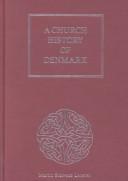| Listing 1 - 10 of 52 | << page >> |
Sort by
|
Periodical
ISSN: 19047967
Abstract | Keywords | Export | Availability | Bookmark
 Loading...
Loading...Choose an application
- Reference Manager
- EndNote
- RefWorks (Direct export to RefWorks)
Journalism --- Journalism. --- Denmark. --- Writing (Authorship) --- Literature --- Publicity --- Fake news --- Dacia (Kingdom) --- Dania --- Dani --- Danie Korolygʺo --- Danii͡ --- Danii͡alʺul Khanlʺi --- Danimārk --- Danimarka --- Danimarka Krallığı --- Daniyah --- Danmark --- Dannemarc --- Danska --- Danyah --- Denemarke --- Denemarken --- Denemearc --- Denemearc þæt Cynerīce --- Denmaakʻ --- Dennemarck --- Dinamarca --- Kingdom of Denmark --- Kongeriget Danmark --- Koninkryk van Denemarke --- Ndinamayka --- Reino de Dinamarca --- journalism --- media --- nordic countries
Book
ISBN: 1800376340 Year: 2021 Publisher: Northampton : Edward Elgar Publishing,
Abstract | Keywords | Export | Availability | Bookmark
 Loading...
Loading...Choose an application
- Reference Manager
- EndNote
- RefWorks (Direct export to RefWorks)
"Analysing two major surveys of 14 different migrant groups connected to Danish register data, this insightful book explores what migrants think of the welfare state. It investigates the question of whether migrants assimilate to the ideas of extensive state intervention in markets and families or if they retain the attitudes and values that are prevalent in their countries of origin. The authors examine what various migrant groups from countries including Poland, Romania, Spain, the UK, China, Japan, Turkey, Russia, the US, Pakistan, Lebanon, Iraq and the former-Yugoslavia living in Denmark think about the trustworthiness of state institutions, state responsibility, economic redistribution, female employment and childcare. Chapters also cover the key issues of national identification, social trust and welfare nationalism. Concluding that migrants from diverse backgrounds assimilate well into the welfare attitudes, norms and values of the Danish people in several areas, the book points to the potential assimilative impact of the welfare state. Incorporating new theoretical discussions, this book will be critical reading for academics and students studying migration and welfare states. It will also be a useful resource for comparative migration researchers interested in the impact of the host country context on migrants' assimilation patterns"--
Immigrants --- Welfare state --- Attitudes. --- Social conditions. --- Emigrants --- Foreign-born population --- Foreign population --- Foreigners --- Migrants --- Persons --- Migration --- Assimilation --- Welfare attitudes --- Denmark. --- Dacia (Kingdom) --- Dania --- Dani --- Danie Korolygʺo --- Danii͡ --- Danii͡alʺul Khanlʺi --- Danimārk --- Danimarka --- Danimarka Krallığı --- Daniyah --- Danmark --- Dannemarc --- Danska --- Danyah --- Denemarke --- Denemarken --- Denemearc --- Denemearc þæt Cynerīce --- Denmaakʻ --- Dennemarck --- Dinamarca --- Kingdom of Denmark --- Kongeriget Danmark --- Koninkryk van Denemarke --- Ndinamayka --- Reino de Dinamarca
Periodical
ISSN: 19015089 22451374
Abstract | Keywords | Export | Availability | Bookmark
 Loading...
Loading...Choose an application
- Reference Manager
- EndNote
- RefWorks (Direct export to RefWorks)
Education, Higher --- College teaching --- Enseignement supérieur --- Enseignement universitaire --- Periodicals --- Periodicals. --- Périodiques --- College teaching. --- Education, Higher. --- Denmark. --- higher education --- universities --- pedagogy and didactics --- Higher education --- Postsecondary education --- Universities and colleges --- University teaching --- Teaching --- College students --- Education --- Dacia --- Dania --- Daniyah --- Danmark --- Dannemarc --- Danska --- Danyah --- Denemarken --- Denmaakʻŭ --- Dennemarck --- Kingdom of Denmark --- Kongeriget Danmark --- Dacia (Kingdom) --- Dani --- Danie Korolygʺo --- Danii͡ --- Danii͡alʺul Khanlʺi --- Danimārk --- Danimarka --- Danimarka Krallığı --- Denemarke --- Denemearc --- Denemearc þæt Cynerīce --- Denmaakʻ --- Dinamarca --- Koninkryk van Denemarke --- Ndinamayka --- Reino de Dinamarca
Periodical
ISSN: 19990219 19953151
Abstract | Keywords | Export | Availability | Bookmark
 Loading...
Loading...Choose an application
- Reference Manager
- EndNote
- RefWorks (Direct export to RefWorks)
Economic history. --- Economic policy. --- Since 1945 --- Denmark --- Denmark. --- Economic conditions --- Economic conditions. --- Economic policy --- Economic nationalism --- Economic planning --- National planning --- State planning --- History, Economic --- Political aspects --- Dacia --- Dania --- Daniyah --- Danmark --- Dannemarc --- Danska --- Danyah --- Denemarken --- Denmaakʻŭ --- Dennemarck --- Kingdom of Denmark --- Kongeriget Danmark --- Economics --- Planning --- National security --- Social policy --- Dacia (Kingdom) --- Dani --- Danie Korolygʺo --- Danii͡ --- Danii͡alʺul Khanlʺi --- Danimārk --- Danimarka --- Danimarka Krallığı --- Denemarke --- Denemearc --- Denemearc þæt Cynerīce --- Denmaakʻ --- Dinamarca --- Koninkryk van Denemarke --- Ndinamayka --- Reino de Dinamarca --- Business, Economy and Management
Periodical
ISSN: 2445818X 19038143
Abstract | Keywords | Export | Availability | Bookmark
 Loading...
Loading...Choose an application
- Reference Manager
- EndNote
- RefWorks (Direct export to RefWorks)
evaluation --- teaching evaluation --- education --- evidence --- feedback --- didactics --- ceprastriben --- Education --- Study and teaching --- Study and teaching. --- Denmark. --- Children --- Education, Primitive --- Education of children --- Human resource development --- Instruction --- Pedagogy --- Schooling --- Students --- Youth --- Civilization --- Learning and scholarship --- Mental discipline --- Schools --- Teaching --- Training --- Dacia (Kingdom) --- Dania --- Dani --- Danie Korolygʺo --- Danii͡ --- Danii͡alʺul Khanlʺi --- Danimārk --- Danimarka --- Danimarka Krallığı --- Daniyah --- Danmark --- Dannemarc --- Danska --- Danyah --- Denemarke --- Denemarken --- Denemearc --- Denemearc þæt Cynerīce --- Denmaakʻ --- Dennemarck --- Dinamarca --- Kingdom of Denmark --- Kongeriget Danmark --- Koninkryk van Denemarke --- Ndinamayka --- Reino de Dinamarca
Book
ISBN: 1911307525 9781911307525 9781911307495 1911307495 1911307517 9781911307518 1911307509 9781911307501 Year: 2017 Publisher: London, England : UCL Press,
Abstract | Keywords | Export | Availability | Bookmark
 Loading...
Loading...Choose an application
- Reference Manager
- EndNote
- RefWorks (Direct export to RefWorks)
For five years during World War II, Denmark was occupied by Germany. While the Danish reaction to this period of its history has been extensively discussed in Danish-language publications, it has not until now received a thorough treatment in English. Set in the context of modern Danish foreign relations, and tracing the country’s responses to successive crises and wars in the region, Danish Reactions to German Occupation brings a full overview of the occupation to an English-speaking audience. Holbraad carefully dissects the motivations and ideologies driving conduct during the occupation, and his authoritative coverage of the preceding century provides a crucial link to understanding the forces behind Danish foreign policy divisions. Analysing the conduct of a traumatised and strategically exposed small state bordering on an aggressive great power, the book traces a development from reluctant cooperation to active resistance. In doing so, Holbraad surveys and examines the subsequent, and not yet quite finished, debate among Danish historians about this contested period, which takes place between those siding with the resistance and those more inclined to justify limited cooperation with the occupiers – and who sometimes even condone various acts of collaboration.
World War, 1939-1945 --- Collaborationists --- Underground movements --- Denmark --- Denemarken --- Dania --- Dannemarc --- Denmaakʻŭ --- Danyah --- Daniyah --- Danmark --- Dennemarck --- Dacia (Kingdom) --- Danska --- Kingdom of Denmark --- Kongeriget Danmark --- Даниэ --- Daniė --- Дание --- Дание Королыгъо --- Danie Korolygʺo --- Denemarke --- Koninkryk van Denemarke --- Denemearc --- Denemearc þæt Cynerīce --- دنمارك --- Danimārk --- Dinamarca --- Reino de Dinamarca --- Ndinamayka --- Дания --- Danii︠a︡ --- Даниялъул Ханлъи --- Danii︠a︡lʺul Khanlʺi --- Danimarka --- Danimarka Krallığı --- History --- Public opinion. --- Historiography. --- Foreign relations

ISBN: 0804040540 9780804040549 0804011443 9780804011440 0804002975 9780804002974 Year: 2013 Publisher: Athens, Ohio : Swallow Press/Ohio University Press,
Abstract | Keywords | Export | Availability | Bookmark
 Loading...
Loading...Choose an application
- Reference Manager
- EndNote
- RefWorks (Direct export to RefWorks)
Originally published in 1947, The Trial of Sören Qvist has been praised by a number of critics for its intriguing plot and Janet Lewis's powerful writing. And in the introduction to this new edition, Swallow Press executive editor and author Kevin Haworth calls attention to the contemporary feeling of the story-despite its having been written more than fifty years ago and set several hundred years in the past. As in Lewis's best-known novel, The Wife of Martin Guerre, the plot derives from Samuel March Phillips's nineteenth-century study, Famous Cases of Circumstantial Evidence, in which this
Qvist, Soren Jensen, --- Quist, Søren Jensen, --- Qvist, Sören, --- Qvist, Søren Jensen, --- Denmark --- Dacia (Kingdom) --- Dania --- Daniė --- Danie Korolygʺo --- Danii︠a︡ --- Danii︠a︡lʺul Khanlʺi --- Danimārk --- Danimarka --- Danimarka Krallığı --- Daniyah --- Danmark --- Dannemarc --- Danska --- Danyah --- Denemarke --- Denemarken --- Denemearc --- Denemearc þæt Cynerīce --- Denmaakʻŭ --- Dennemarck --- Dinamarca --- Kingdom of Denmark --- Kongeriget Danmark --- Koninkryk van Denemarke --- Ndinamayka --- Reino de Dinamarca --- Даниэ --- Дания --- Даниялъул Ханлъи --- Дание --- Дание Королыгъо --- دنمارك --- History --- Qvist, Sren Jensen,

ISBN: 1281412597 9786611412593 1607526131 9781607526131 9781593118761 1593118767 9781593118778 1593118775 9781281412591 661141259X Year: 2008 Publisher: Charlotte, N.C. IAP-Information Age Pub.
Abstract | Keywords | Export | Availability | Bookmark
 Loading...
Loading...Choose an application
- Reference Manager
- EndNote
- RefWorks (Direct export to RefWorks)
Sports for children --- Sports and state --- Civil society --- Social contract --- Sports --- Sports policy --- State and sports --- Children --- Government policy --- Denmark --- Dacia (Kingdom) --- Dania --- Daniė --- Danie Korolygʺo --- Danii︠a︡ --- Danii︠a︡lʺul Khanlʺi --- Danimārk --- Danimarka --- Danimarka Krallığı --- Daniyah --- Danmark --- Dannemarc --- Danska --- Danyah --- Denemarke --- Denemarken --- Denemearc --- Denemearc þæt Cynerīce --- Denmaakʻŭ --- Dennemarck --- Dinamarca --- Kingdom of Denmark --- Kongeriget Danmark --- Koninkryk van Denemarke --- Ndinamayka --- Reino de Dinamarca --- Даниэ --- Дания --- Даниялъул Ханлъи --- Дание --- Дание Королыгъо --- دنمارك --- Ethnic relations.
Book
ISBN: 1283902192 9004231994 9789004231993 9789004228689 9004228683 9781283902199 Year: 2013 Publisher: Leiden Boston Brill
Abstract | Keywords | Export | Availability | Bookmark
 Loading...
Loading...Choose an application
- Reference Manager
- EndNote
- RefWorks (Direct export to RefWorks)
Several years before Denmark legislated against the Atlantic slave trade in 1792, the government, anticipating the decline of production in the Danish West Indies as a consequence, embarked on a policy of agricultural colonization in West Africa. Peter Thonning, a young natural historian of the highly economic and geographical Linnaean school, spent three formative years in Africa and then for decades administered Denmark's African colonial undertakings. The international movement of colonial news and ideas can very usefully be traced in his unpublished writings, especially among the Guinea Commission's extraordinarily wide-ranging records. These rich archives and contemporary published opinion in this cosmopolitan Scandinavian society open fresh perspectives on the broader history and geography of European colonialism.
POLITICAL SCIENCE / Colonialism & Post-Colonialism --- HISTORY / Modern / 19th Century --- HISTORY / Europe / Scandinavia --- HISTORY / Africa / West --- Thonning, Peter, --- Denmark --- Ghana --- Dacia (Kingdom) --- Dania --- Daniė --- Danie Korolygʺo --- Danii︠a︡ --- Danii︠a︡lʺul Khanlʺi --- Danimārk --- Danimarka --- Danimarka Krallığı --- Daniyah --- Danmark --- Dannemarc --- Danska --- Danyah --- Denemarke --- Denemarken --- Denemearc --- Denemearc þæt Cynerīce --- Denmaakʻŭ --- Dennemarck --- Dinamarca --- Kingdom of Denmark --- Kongeriget Danmark --- Koninkryk van Denemarke --- Ndinamayka --- Reino de Dinamarca --- Даниэ --- Дания --- Даниялъул Ханлъи --- Дание --- Дание Королыгъо --- دنمارك --- Colonies --- History. --- History --- Africa --- Colonization --- Eastern Hemisphere

ISBN: 1315264005 1351962744 9781351962759 1351962752 9781351962742 9780754603078 9781315264004 9781351962735 0754603075 Year: 2016 Publisher: London
Abstract | Keywords | Export | Availability | Bookmark
 Loading...
Loading...Choose an application
- Reference Manager
- EndNote
- RefWorks (Direct export to RefWorks)
The assertion written on the Great Stone of Jelling is that it was Harold (Bluetooth) who converted the Danes to Christianity in c.965. In this comprehensive survey, Martin Schwarz Lausten charts the fortunes of the church in Denmark from its very beginnings to the present day. Starting with the pagan society of the Vikings, Lausten describes how the Danes were introduced to the new religion prior to Harald's enthronement through their contact with Christian traders and missionaries, and in the encounters of the Viking raiders with Christian culture in France and England. Drawing on a wealth of manuscript, printed and pictorial sources, the book details how Church and Royal power transformed an ancient peasant society into a typical medieval state. Following chapters examine the impact of Luther and the Reformation on Danish society, and the shift in the struggles for authority between the Church and the State. The influence of the Humanist movement and the European Enlightenment are also examined in full, together with the issues they raised such as how the Church was to speak to the modern man who no longer took at face value the authority of the Bible. Lausten brings his survey right up to current times with an overview of the nineteenth-century revivalist movements, the Danish Church's response to the Jewish question during the German occupation, through to the present day establishment of the People's Church.
Denmark --- Dacia (Kingdom) --- Dania --- Daniė --- Danie Korolygʺo --- Danii︠a︡ --- Danii︠a︡lʺul Khanlʺi --- Danimārk --- Danimarka --- Danimarka Krallığı --- Daniyah --- Danmark --- Dannemarc --- Danska --- Danyah --- Denemarke --- Denemarken --- Denemearc --- Denemearc þæt Cynerīce --- Denmaakʻŭ --- Dennemarck --- Dinamarca --- Kingdom of Denmark --- Kongeriget Danmark --- Koninkryk van Denemarke --- Ndinamayka --- Reino de Dinamarca --- Даниэ --- Дания --- Даниялъул Ханлъи --- Дание --- Дание Королыгъо --- دنمارك --- Church history. --- Danemark --- Christianisme --- Denmark - Church history --- 27 <489> --- Kerkgeschiedenis--Denemarken
| Listing 1 - 10 of 52 | << page >> |
Sort by
|

 Search
Search Feedback
Feedback About UniCat
About UniCat  Help
Help News
News